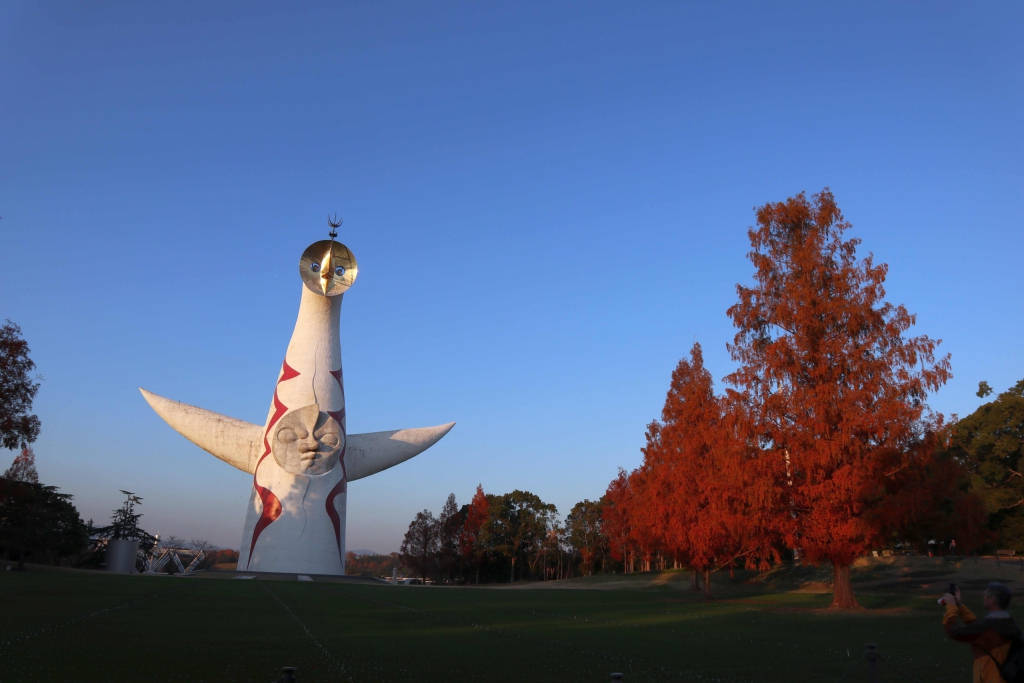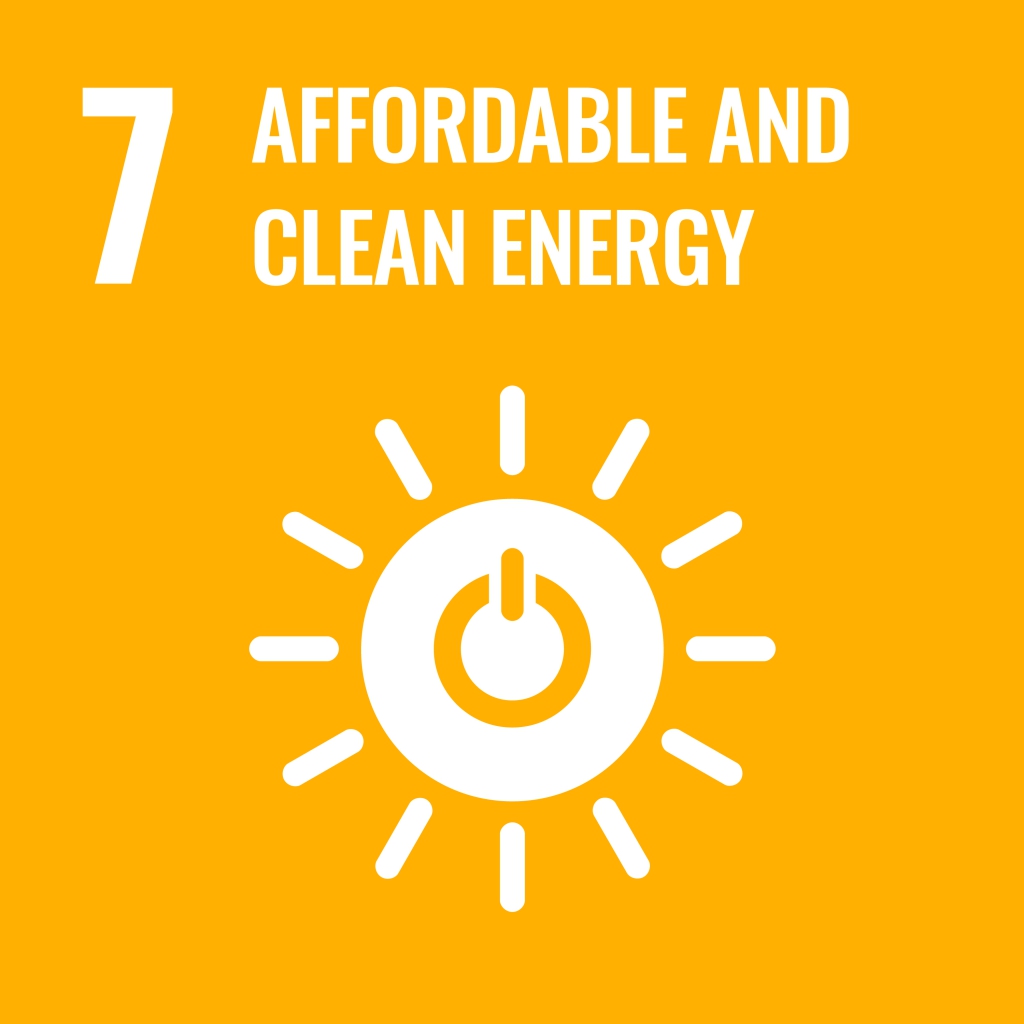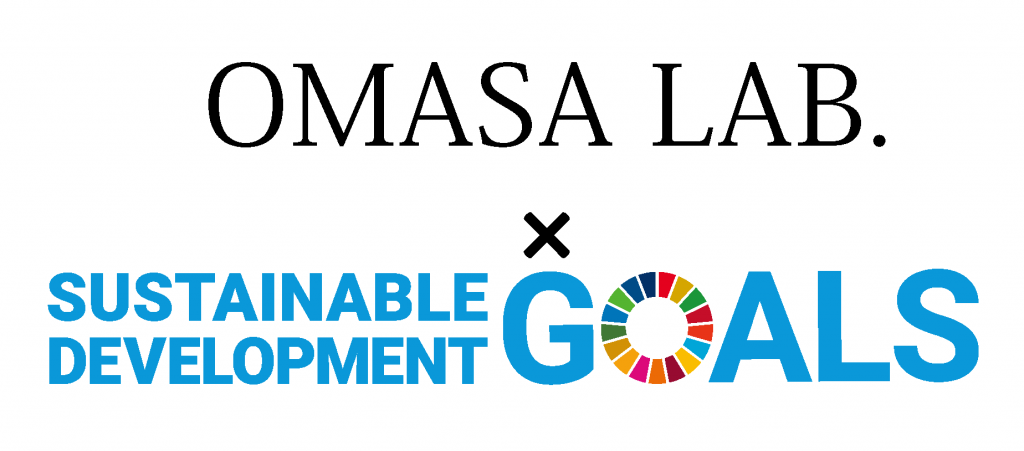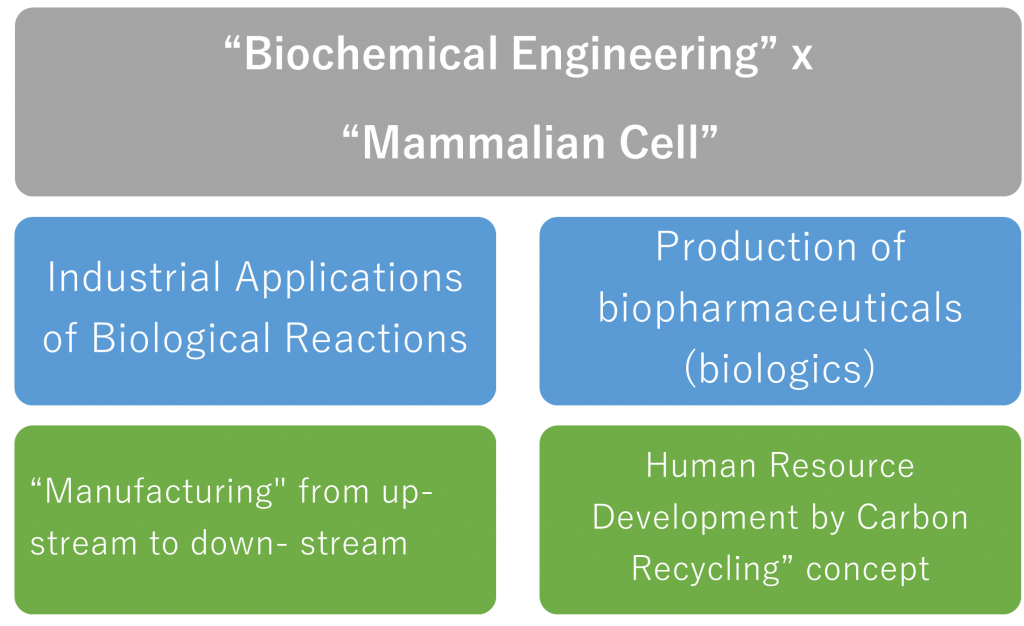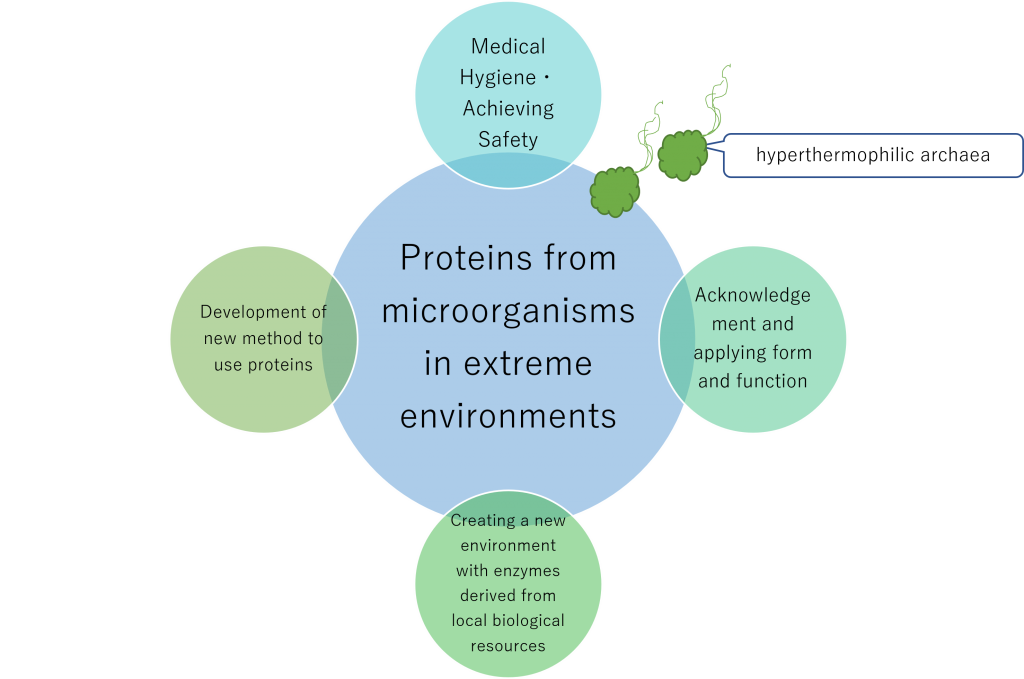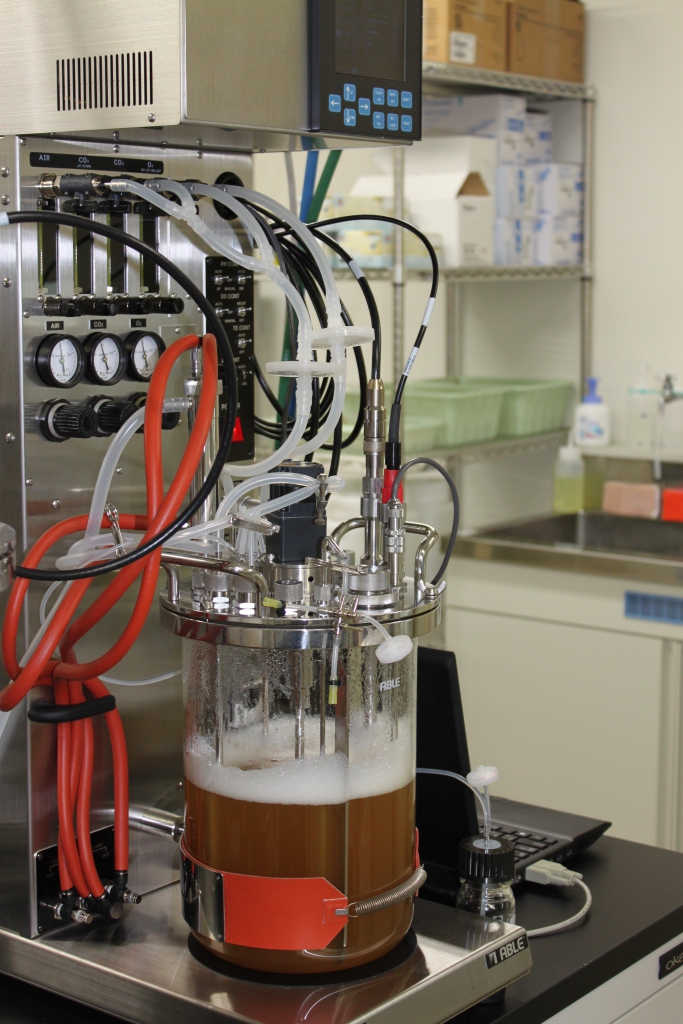
We are achieving the SDGs through mammalian cell culture.
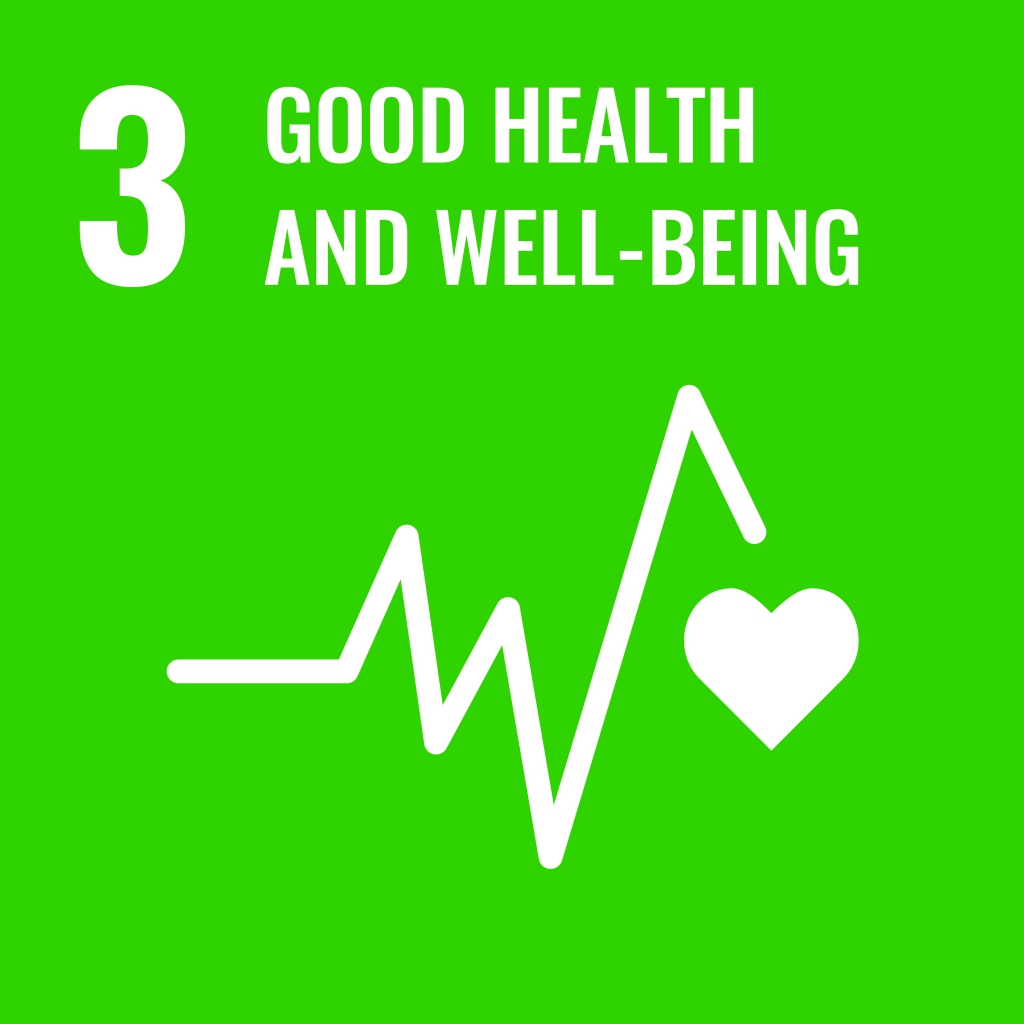
Engineering for manufacturing processes of biopharmaceuticals (biologics; i.e., therapeutic antibody, vaccine, gene-therapy vector, etc.)
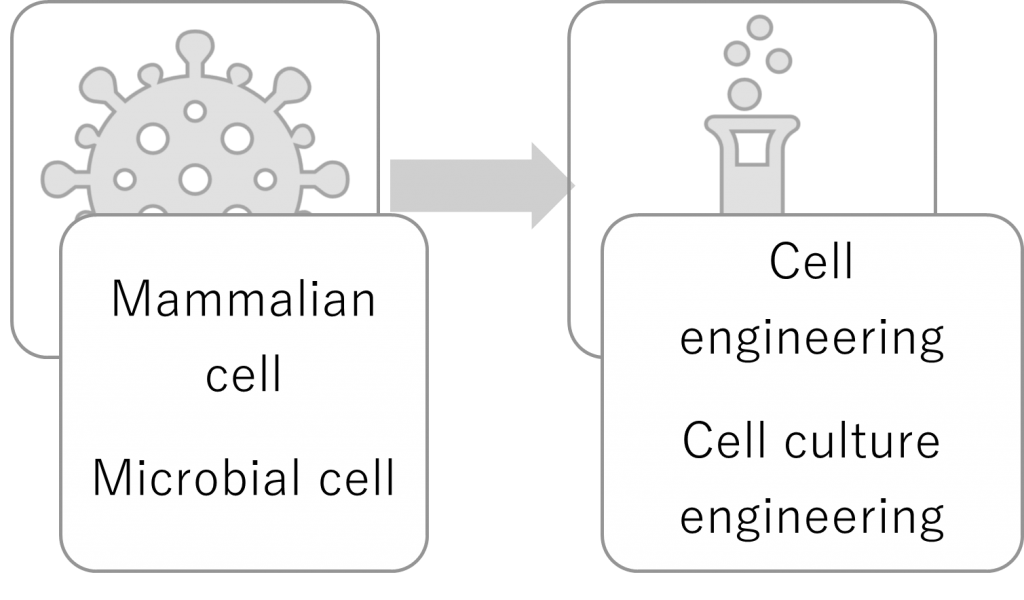
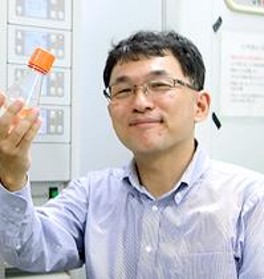 Prof.OMASA
Prof.OMASA We are conducting research on the production of biopharmaceuticals (biologics; i.e., therapeutic antibody, vaccines, gene-therapy vector etc.) using mammalian cells, but our goal is not to produce molecule themselves.
To construct and control productive mammalian cells produce biopharmaceuticals, it is essential to understand the mammalian cell itself (genome, gene expression, metabolism, etc., the fundamental understanding of cells) and its engineering. These basic researches (from cell engineering, cell culture engineering, to downstream processes) will lead to the development of advanced manufacturing.
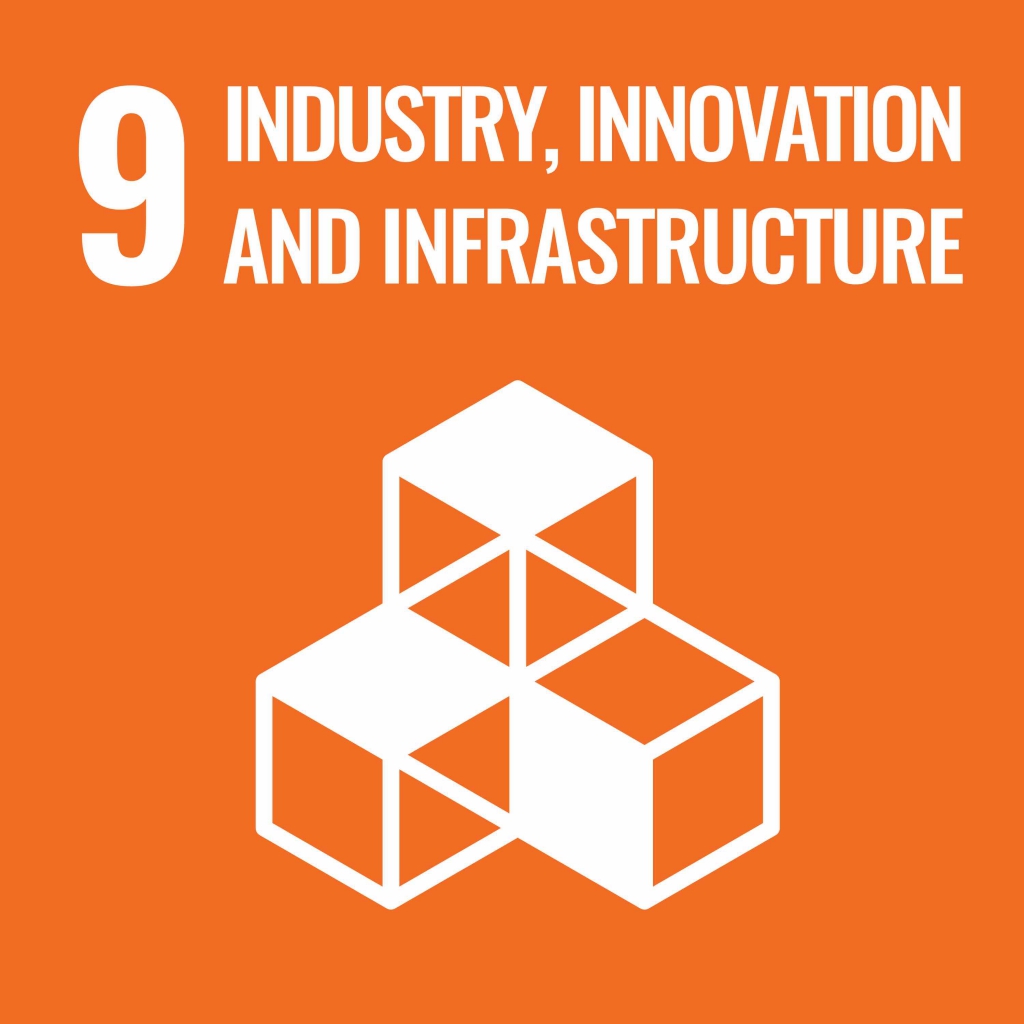

Research for industrial applications of biological reactions
We are studying Chinese hamster-derived cell (i.e., CHO, CHL) cell culture in biopharmaceutical production. We are developing new cell lines with improved productivity and applications in biopharmaceutical production.
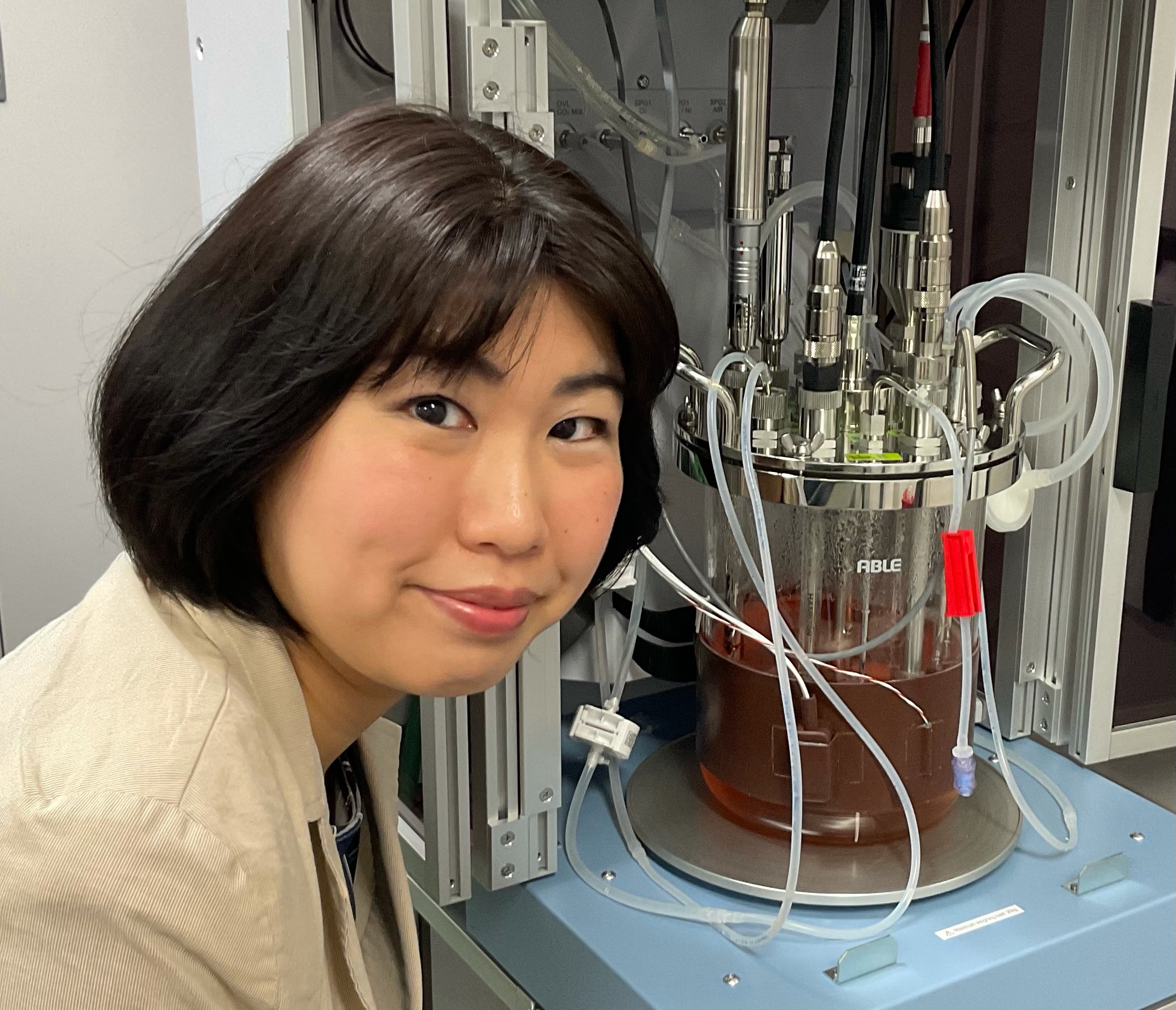


We are developing production methods for pharmaceuticals produced using mammalian cells, such as CHO, CHL cells, and the technologies we have developed are contributing to industrial society as a platform.
Human resource development by carbon recycling business
In the midst of social issues that are expected to transform manufacturing to contribute to CO2 reduction and the realization of a carbon-recycling society, we will develop basic technologies for bio-manufacturing and foster human resources who can bridge the gap between advanced research and industry.
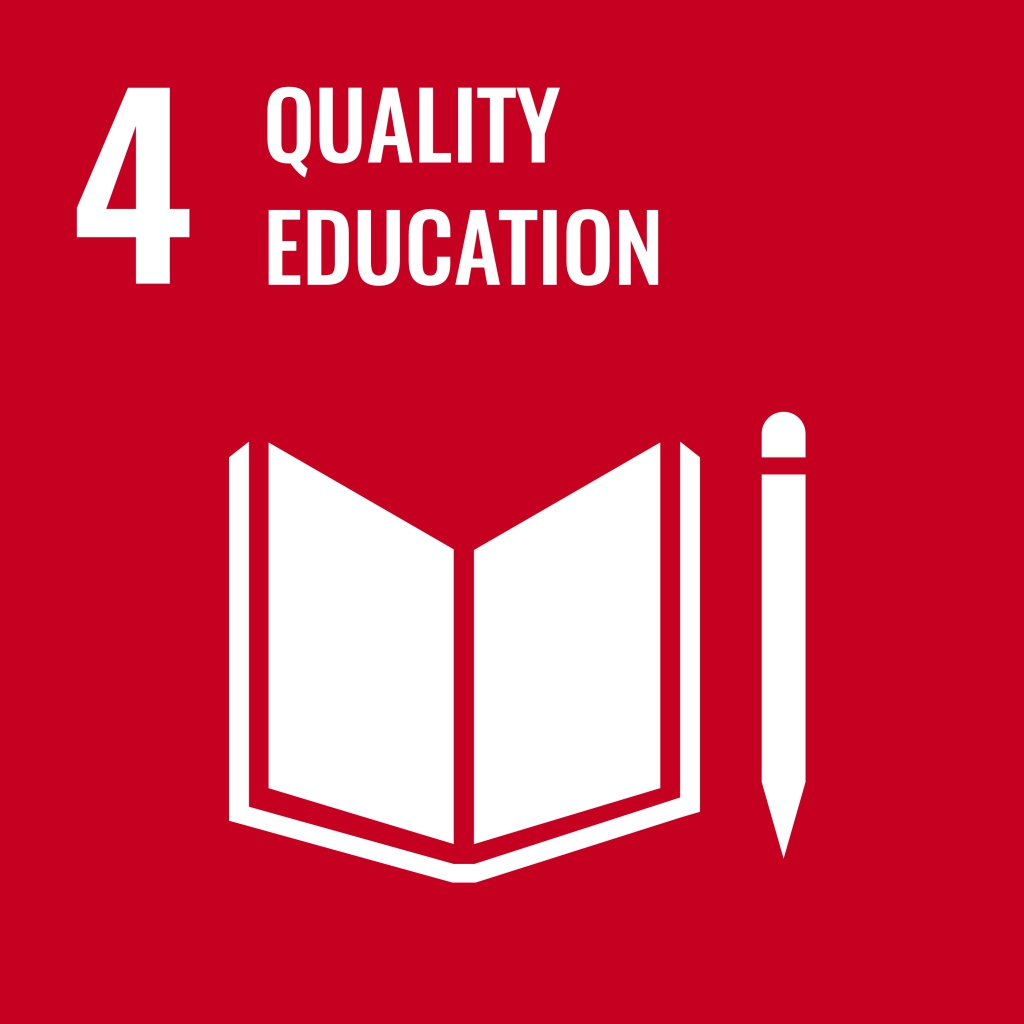

- What is a carbon-recycling ?
-
CO2 is regarded as a carbon resource (carbon), and it is recovered and reused (recycled) as fuel, minerals, and chemical products.
- What is purpose for ?
-
The goal is to significantly reduce CO2 emissions associated with the use of fossil fuels, to solve and contribute to climate change issues, and to secure a stable source of new resources.
- What is a carbon-circulating society?
-
A sustainable society that integrates a society in harmony with nature, a low-carbon society, and a recycling-oriented society.
- What is a bio-foundry?
-
We have developed fundamental technologies in a wide range of fields to construct cells (smart cells) that maximize the material production capacity of living organisms. The goal is to establish industrial material production by utilizing and collaborating with these various technologies.
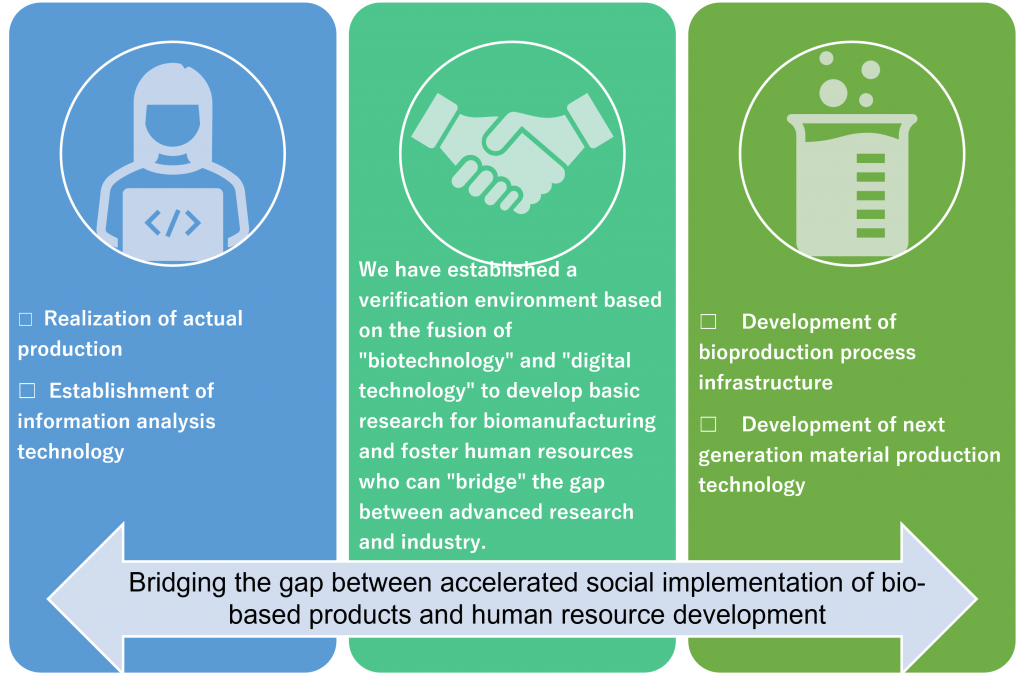




We are implementing a program to develop human resources for manufacturing using the Bio-foundry Base.
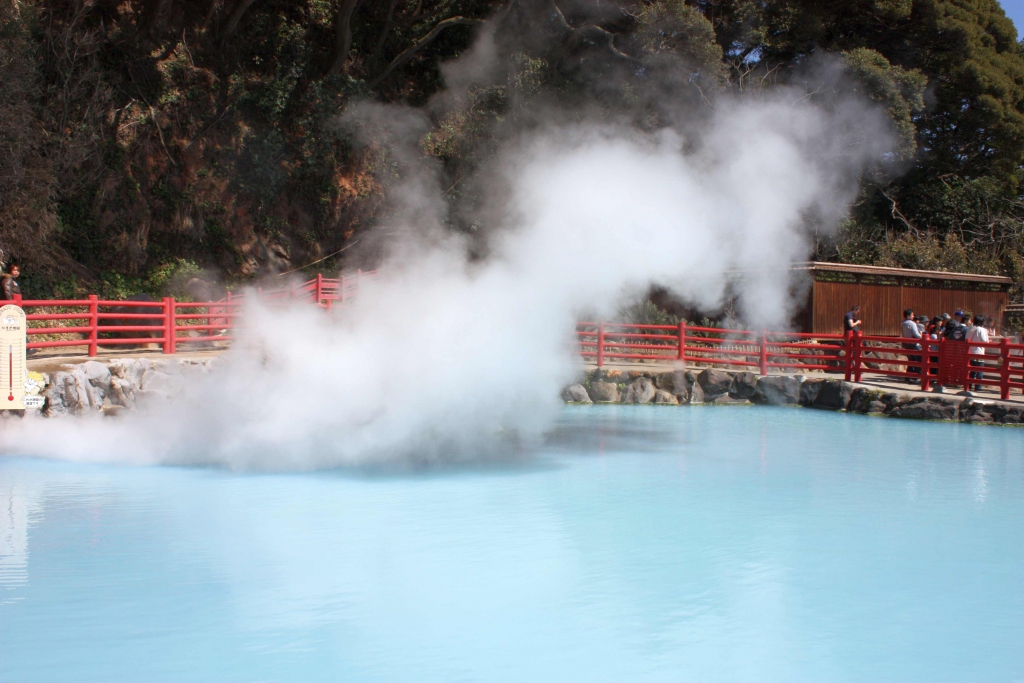

2. We will achieve the SDGs through “the function of microbial proteins in extreme environments.


Basic research on the enzymes of hyperthermophilic archaea with special functions
- What is a hyperthermophilic enzyme, one of the microorganisms found in extreme environments?
-
Highly stable functional molecules that do not denature even at 100°C
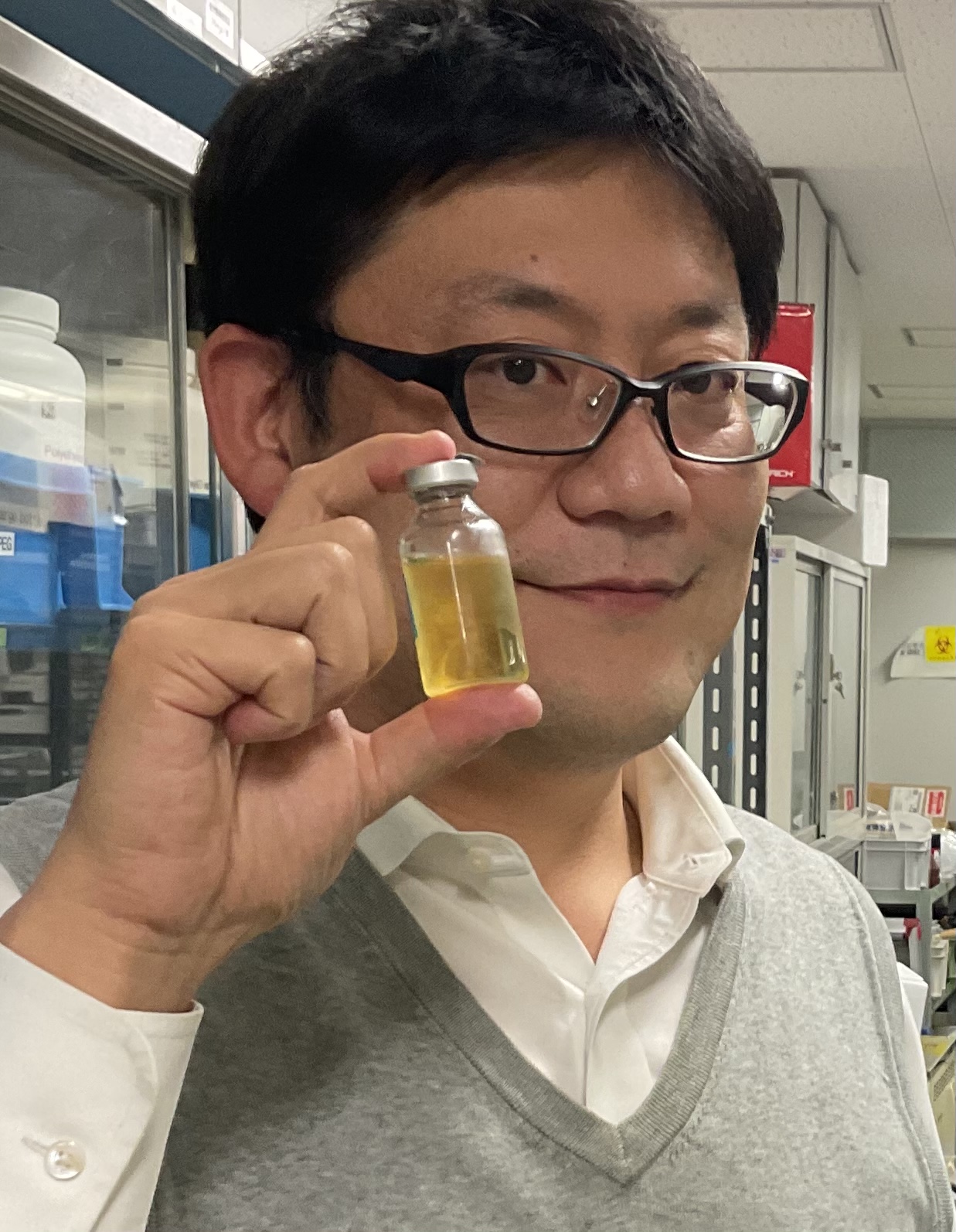


We are working on optimizing the composition of detergents using the enzymes of hyperthermophilic bacteria. This is expected to prevent infections in hospitals and make hygiene management safer and higher quality.
Exploration of local biological resources
We are searching for useful enzymes by maturing and composting (composting) the branches and leaves of the trees pruned at EXPO’70 Commemorative Park. These enzymes are used to effectively utilize local biological resources, such as by breaking down PET produced for use in plastic bottles and clothing.
